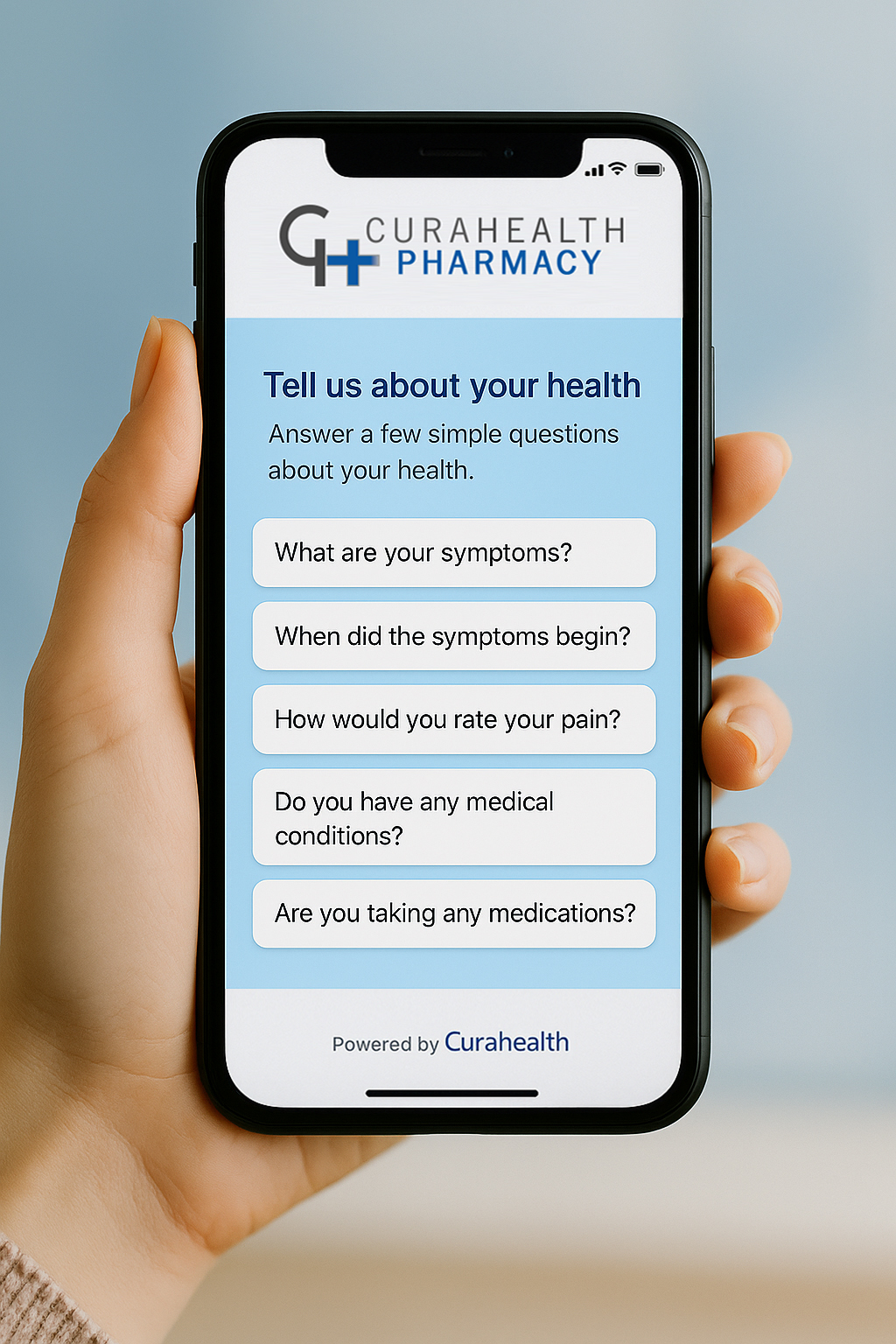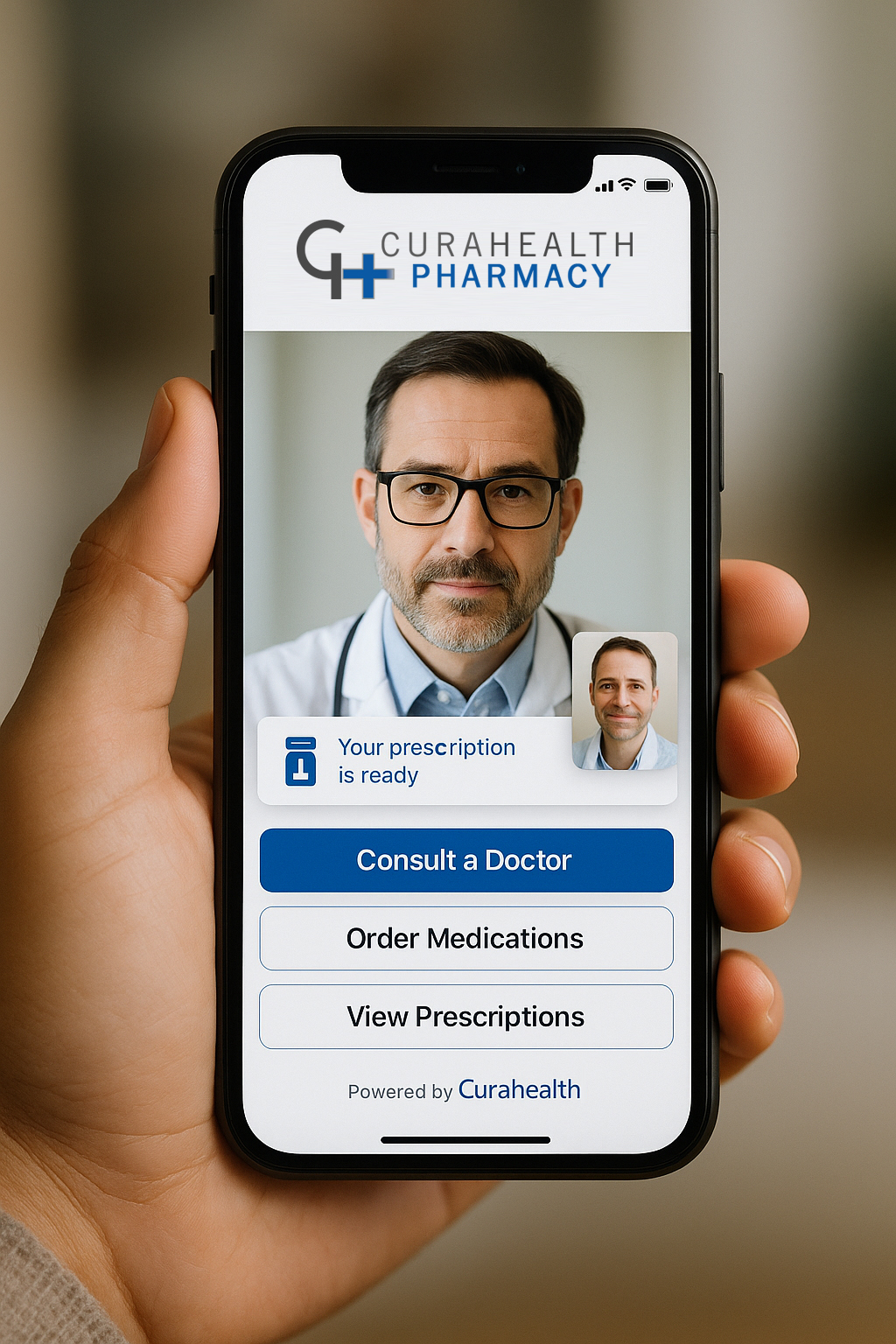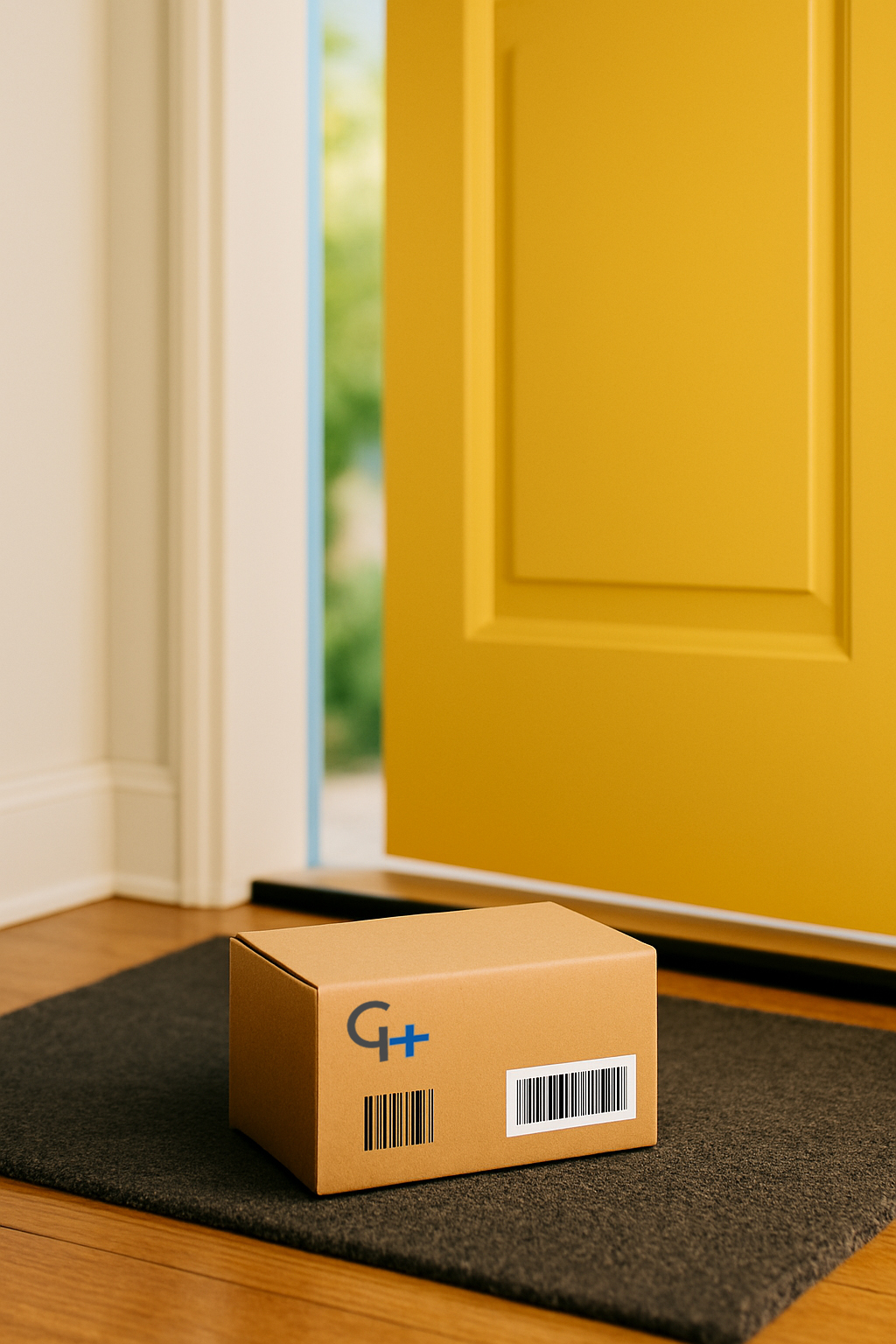Klonopin (Clonazepam)
Clonazepam is a benzodiazepine class medication (a “benzo”) that exerts its effects by enhancing the action of the inhibitory neurotransmitter GABA in the central nervous system. It is long acting relative to some other benzodiazepines, and has anxiolytic (anti anxiety), anticonvulsant (anti seizure), sedative, and muscle relaxant properties.
Brand names include Klonopin (US) and Rivotril (in other countries). The drug’s typical onset is within an hour or so, and its effects may persist for many hours because of its long half life.
What is it used for?
Clonazepam is used primarily for two broad types of conditions:
- Seizure disorders: It is approved for certain types of epilepsy (including absence seizures, myoclonic seizures, akinetic seizures) as monotherapy or adjunctive therapy.
- Anxiety / panic disorders: It’s approved (in many jurisdictions) for panic disorder (with or without agoraphobia) and sometimes for acute anxiety symptoms.
Beyond these, there are off label uses (such as REM sleep behaviour disorder) but for the purpose of this guide I will focus on the main indications.
How does Clonazepam work (mechanism of action)?
Clonazepam binds to benzodiazepine binding sites (on the GABA_A receptor complex) and thereby increases the effect of GABA (gamma aminobutyric acid) – the brain’s major inhibitory neurotransmitter. This leads to increased influx of chloride ions, neuronal hyperpolarization, and thus decreased excitability of neurons.
Because of that mechanism, you get anticonvulsant, anxiolytic, muscle relaxant and sedative effects. However, because it acts in this way, the drug also carries risks (tolerance, dependence, withdrawal) typical of benzodiazepines.
Dosage, how to take it, and how long for
Dosage depends on indication (seizures vs panic disorder), age, liver/renal function, etc. Some key points:
- For panic disorder in adults: an initial dose might be 0.25 mg twice daily; later the maintenance might be ~1 mg per day, up to maximum ~4 mg/day in some patients.
- For seizure disorders: adults may start around 1.5 mg/day divided in 3 doses, gradually increased by 0.5 1 mg every 3 days until seizure control or tolerability limit; maintenance might be 2 8 mg/day (and in rare cases higher) but not to exceed ~20 mg/day.
- Administration: tablets (0.125 mg, 0.25 mg, 0.5 mg, 1 mg, 2 mg) in many markets; oral disintegrating tablets available.
- Duration / how long to take: For some indications (like seizures) long term use may be required. For panic/anxiety the physician will evaluate regularly whether continuation is necessary.
- Important: you should not stop clonazepam abruptly without medical supervision; if used for >4 weeks, a gradual taper is typically required to avoid withdrawal.
- How to take it: With or without food. Follow your doctor’s instructions exactly. If you forget a dose, take as soon as you remember unless it’s almost time for the next dose – then skip the missed one. Do not double up.
How to get prescribed Clonazepam (Klonopin) online / via Telehealth
Given that clonazepam is a controlled substance (Schedule IV in many jurisdictions including the U.S.) and has risks of dependence and misuse, prescriptions carry stricter rules. Here are key points:
- When using a telehealth or online platform, you typically need a licensed prescriber (psychiatrist, neurologist, or physician) to evaluate you via video/consultation and determine the indication and safety. You cannot simply request it online without evaluation. For controlled substances, the prescriber patient relationship must be properly established.
- In the U.S., the Drug Enforcement Administration (DEA) has extended certain telemedicine flexibilities (from the COVID 19 public health emergency period) allowing Schedule II V substances to be prescribed by telemedicine without an in person visit if conditions are met.
- However: many online telehealth platforms still do not routinely prescribe benzodiazepines or other substances with high misuse potential via remote-only consults. They may require an in person visit or they may decline such prescriptions online.
- Steps you’d typically follow:
- Book an appointment with a licensed online mental health or neurology provider.
- Undergo assessment: your medical history, current symptoms (anxiety, panic, seizures), past medication use, other diagnoses, substance use, etc.
- Provider determines if clonazepam is appropriate (indication, risk/benefit, alternative treatments).
- If yes, the provider issues a prescription (e script) to your chosen pharmacy.
- Follow up: Because of risk of dependence, many providers will require periodic follow up to assess continued need, monitor side effects, adjust dosage, and plan tapering if appropriate.
- Important caution: Just because a website offers “online prescription” does not mean that it is appropriate or legal in your country/state for clonazepam. Always check local regulations and ensure the provider is licensed and legitimate.
- From a practical standpoint: If you live outside the U.S., you’ll need to check your national/local regulations. Also, availability of clonazepam via telehealth may be restricted because of its benzodiazepine status.
Summary: Yes, you can be prescribed clonazepam via telehealth in certain cases, but you must meet criteria, have an appropriate medical indication, undergo evaluation, and comply with controlled substance rules. Never use an online platform that offers clonazepam “just by filling a form” without evaluation – that may be unsafe and illegal.
Anxiety disorders and Clonazepam
One of the common uses of clonazepam is for anxiety and specifically for panic disorder.
- In panic disorder (with or without agoraphobia), clonazepam has been used (in approved indications) to reduce panic attacks and help stabilize symptoms. According to dosage guidelines: initial adult dose ~0.25 mg twice daily, increasing to ~1 mg/day.
- Because of its longer half life, clonazepam may offer more sustained anxiety relief compared to very short acting benzodiazepines.
- However, caution is required: long term use carries risks. Many guidelines recommend that benzodiazepines be used short term (e.g., until other longer term therapies like antidepressants or psychotherapy take effect) rather than as indefinite first line for chronic anxiety.
- Important factors when using clonazepam for anxiety:
- Evaluate underlying causes of anxiety (generalised anxiety disorder, social anxiety, panic disorder, OCD, etc).
- Consider non medication treatments: cognitive behavioural therapy, lifestyle changes (sleep hygiene, exercise, reducing caffeine/alcohol), mindfulness.
- Use the lowest effective dose for the shortest duration needed.
- If using for longer term, have a plan for periodic review and for tapering when appropriate.
- Some patients may use clonazepam as a “rescue” for panic attacks, but because of dependence risk, this approach must be closely supervised by a physician.
Side Effects
Clonazepam has a range of side effects – some common, some serious.
Common / less severe side effects may include:
- Drowsiness, sedation, fatigue.
- Impaired coordination (ataxia), unsteadiness.
- Memory problems, especially short term memory (anterograde amnesia).
- Dizziness, confusion.
- Slurred speech, slowed reaction time.
- Weakness, muscle relaxation.
- Possibly depression or worsening mood.
- In some individuals, paradoxical reactions (agitation, irritability) though these are less common.
Serious side effects / warnings:
- Respiratory depression: when combined with other CNS depressants (alcohol, opioids, sedatives) the risk of slowed or stopped breathing increases.
- Dependence and withdrawal: Long term use (especially at higher doses) can lead to physical dependence, and stopping suddenly can lead to withdrawal symptoms – which may include anxiety rebound, seizures, tremors, in extreme cases life threatening convulsions.
- Tolerance: Over time, the drug may lose effectiveness, requiring higher doses, which increases risk.
- Use in elderly: Because older people metabolize benzodiazepines more slowly and are more sensitive, risk of accumulation, sedative effects, falls, cognitive impairment increases.
- Use in pregnancy/breastfeeding: Use during pregnancy may harm the fetus; in breastfeeding the drug passes into milk.
- Increased risk of suicidal thoughts/behaviour in some cases (especially in people who are already depressed).
What to do: If you experience serious side effects (e.g., difficulty breathing, severe sedation, mood changes, suicidal thoughts) you must seek medical help immediately. Also, do not attempt to stop clonazepam abruptly – always taper under medical supervision.
Drug Interactions
Clonazepam interacts with many other medications – some potentially dangerous.
Key interactions include:
- Other central nervous system depressants: alcohol, opioids, sedative hypnotics, antihistamines, antipsychotics – combined use increases risk of profound sedation, respiratory depression, coma.
- Enzyme inhibitors/inducers: Because clonazepam is metabolised (in part) by cytochrome P450 enzymes (such as CYP3A4), drugs that inhibit or induce those enzymes can affect levels of clonazepam (and vice versa). The Wikipedia article notes example: carbamazepine induces, reducing clonazepam.
- Some anticonvulsants: Since clonazepam is used in epilepsy, it may be used with other antiepileptics; these may affect its levels or effects, and additive sedative effects can occur.
- In older adults or those with hepatic/renal impairment: Clearance may be reduced, risk of accumulation and side effects higher.
What to do: Before starting clonazepam (or any benzodiazepine) tell your doctor all the medications you take (including over the counter, supplements, herbal products). Avoid alcohol while using clonazepam as it significantly elevates risk.
Safety considerations, dependency & withdrawal
Because clonazepam is a benzodiazepine, certain special safety issues warrant focused attention:
- Dependence: Even at therapeutic doses, benzodiazepines carry risk of dependence (physical & psychological) if used for prolonged periods. The Wikipedia article reports that about one third of people taking benzodiazepines for more than four weeks develop dependence.
- Withdrawal: If clonazepam is stopped abruptly (especially after long term or high dose use), withdrawal symptoms may include anxiety rebound, insomnia, irritability, tremors, sweating, palpitations – and in severe cases seizures and psychosis.
- Tapering: To discontinue safely, a slow taper is usually recommended (e.g., reduce dose gradually over weeks or months depending on duration of use, dose, patient factors). The drugs.com dosage guide for clonazepam includes guidance that discontinuation should be gradual (e.g., decrease 0.125 mg twice daily every three days in panic disorder context).
- Use in high risk populations: Elderly, people with respiratory disease, liver disease, substance use disorders, pregnant women – need extra caution or avoid altogether.
- Duration of use: Many guidelines suggest limiting benzodiazepine use for anxiety/panic to the shortest duration necessary, and combining with non medication therapies (psychotherapy, lifestyle). Long term reliance solely on benzodiazepines increases risk of tolerance, dependence and potentially cognitive decline.
How to decide if Clonazepam is right for you
If you or your doctor are considering clonazepam, here are key decision points:
- Confirm that your diagnosis matches one of the approved/appropriate uses (e.g., panic disorder, certain seizures) and that the potential benefits outweigh risks.
- Review your full medical history: prior benzodiazepine use, substance use or addiction history, respiratory issues, liver/kidney problems, pregnancy status, other medications.
- Start with the lowest effective dose, for the shortest possible duration, especially in conditions like anxiety.
- Be clear on goals: Are you using clonazepam for short term relief (e.g., until an antidepressant or therapy starts working)? Or is this a longer term antiepileptic use? The plan should be explicit.
- Plan a follow up: Determine intervals for review of efficacy, side effects, and decision on continuation vs tapering.
- Make sure you have an exit strategy: Understand that when the time comes to stop clonazepam (or switch to another therapy), appropriate tapering must be arranged.
- Monitor: For side effects, cognitive/motor impairment, mood changes, signs of dependence (needing more for same effect), misuse behaviours.
Summary
Clonazepam (Klonopin) is a powerful, effective medication for certain conditions (panic disorder, seizure disorders) with a mechanism of action rooted in enhancing GABAergic inhibition. If used appropriately – with careful dosing, monitoring, patient education, and exit/taper plan – it can be a valuable tool. However, because of its risk profile (dependence, withdrawal, sedation, cognitive/motor effects, interactions) it demands respect, caution, and thoughtful clinical management.
If you are considering clonazepam (whether via in person or telehealth care), ensure you have:
- A clear diagnosis and indication
- A full review of your medical/medication history
- A plan for how long it will be used, how you’ll monitor it, how you’ll stop it
- Awareness of side effects and interactions
- Commitment to safe use (avoid alcohol/other depressants)
- Access to follow up care and tapering strategy
All content provided by Curahealth Pharmacy on this website is for general informational purposes only. It does not constitute medical advice, diagnosis, or treatment, and should not be used as a substitute for consultation with a licensed healthcare provider.
This website may include links to third-party websites for convenience. Curahealth Hospitals or Cobalt Rehabilitation or Curahealth Pharmacy does not control these sites and makes no guarantees about the accuracy, completeness, or reliability of any content found there. We assume no responsibility for information provided on external websites.
Frequently Asked Questions (FAQs)
Q: Can I take Clonazepam every day for my anxiety?
A: Yes – under a doctor’s prescription, daily use is possible, particularly for panic disorder – but this must be monitored carefully. Because of risks of dependence and tolerance, many doctors prefer short term use or combined therapy (medication + psychotherapy) rather than indefinite sole reliance on clonazepam.
Q: Can I drink alcohol while taking Clonazepam?
A: It is strongly discouraged. Alcohol is a CNS depressant and when combined with clonazepam (another depressant) the risk of excessive sedation, respiratory depression or other serious adverse events increases significantly.
Q: How long does Clonazepam stay in my system?
A: Because clonazepam has a relatively long half life, its effects and metabolites persist for many hours – elimination half lives are reported in the range of ~30–40 hours or more depending on individual factors.
Q: Can I stop Clonazepam after 2 weeks?
A: Perhaps yes, if your doctor has prescribed it for a short term indication and you are ready to stop. But even after 2 weeks, a plan for tapering (or switch) is sensible rather than abrupt cessation. Always follow your prescriber’s instructions.
Q: What happens if I miss a dose?
A: If you forget one dose, take it as soon as you remember unless it’s almost time for the next scheduled dose – in that case, skip the missed dose and resume your normal schedule. Do not double up.
Q: Is Clonazepam safe for children/elderly?
A: Use in children and elderly requires extra caution. Pediatric dosages are weight based; elderly patients are more sensitive to benzodiazepines with higher risk of falls, cognitive impairment, accumulation.
Q: Can I substitute Clonazepam for another benzodiazepine?
A: Possibly but only under medical supervision. Differences in pharmacokinetics, potency and individual response make substitution a medical decision.


